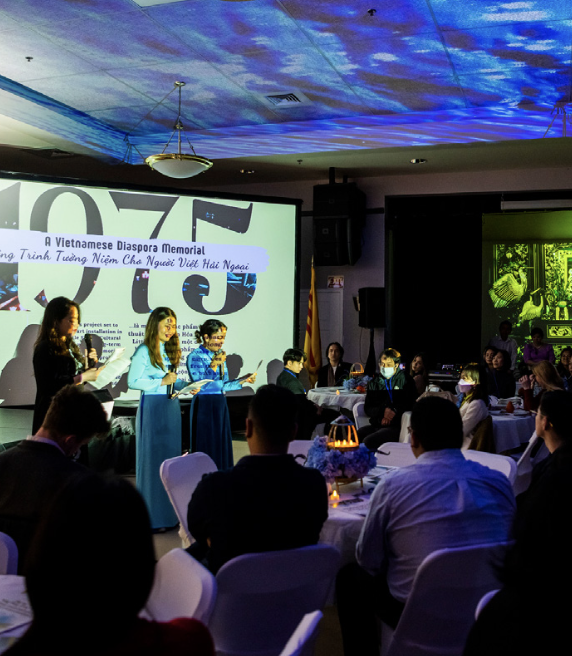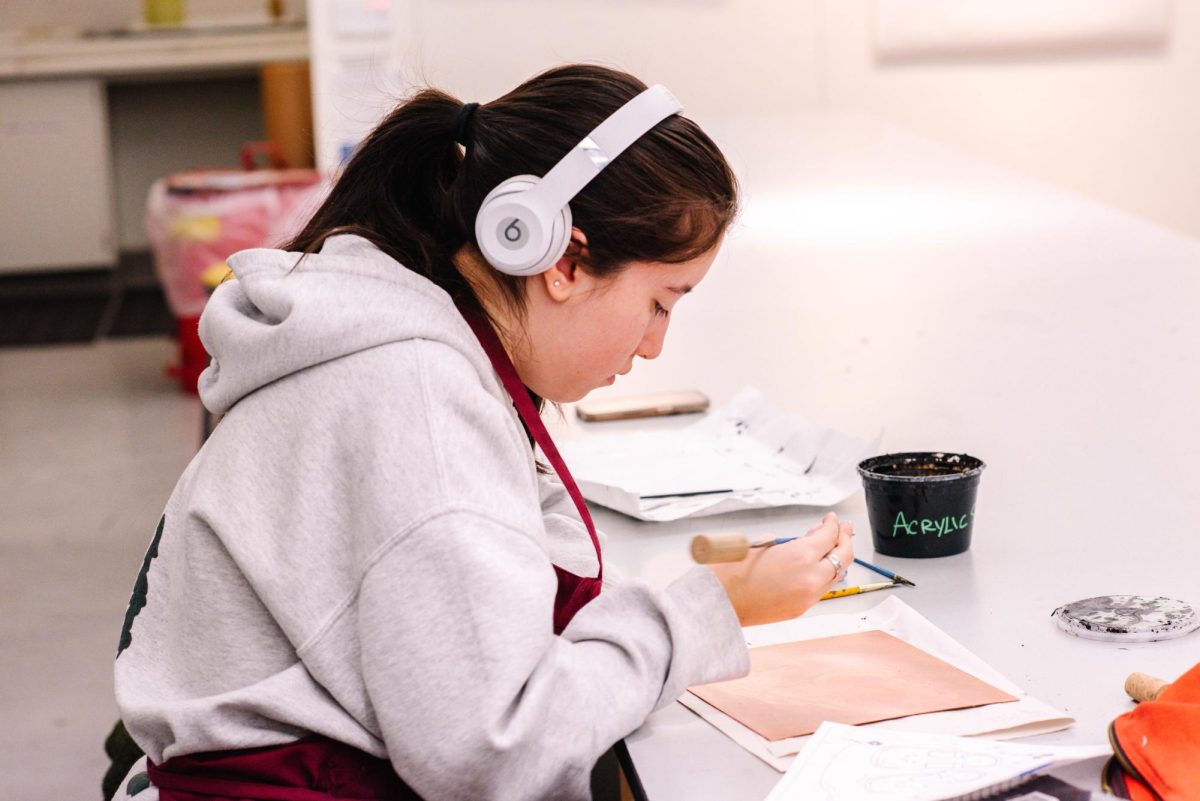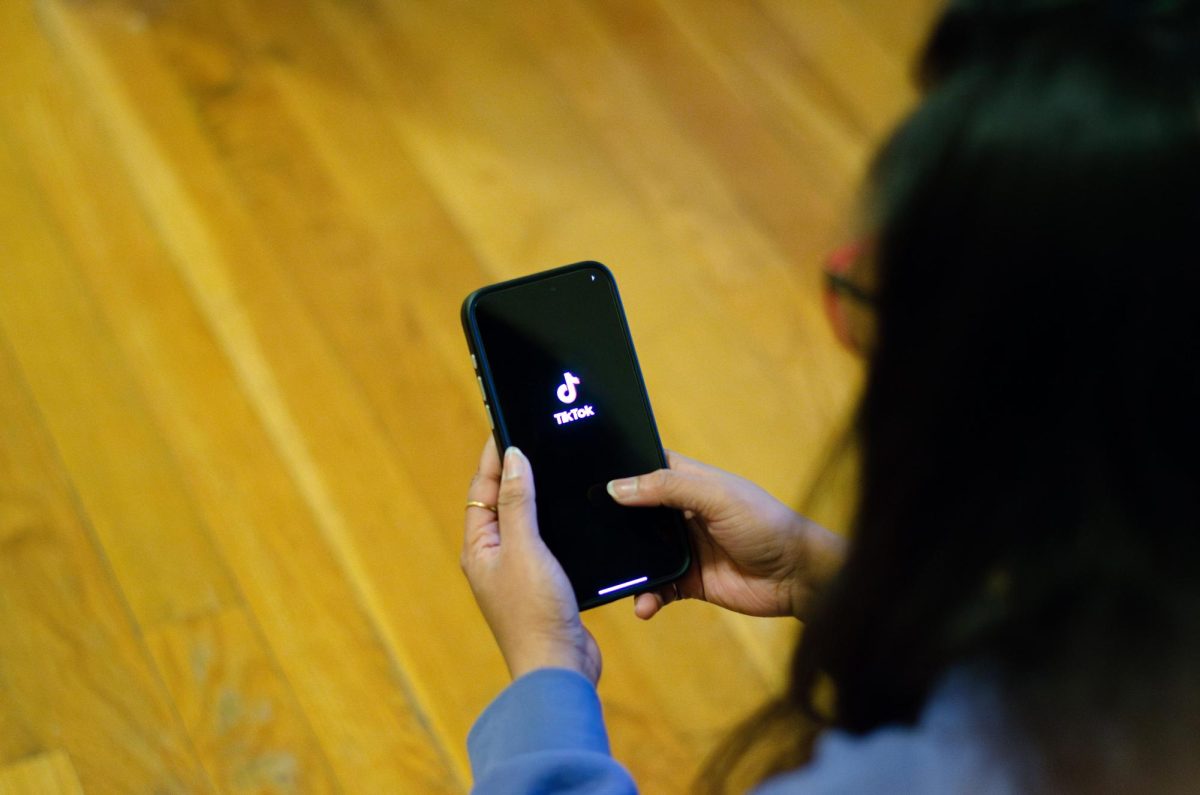On Wednesday, Feb. 26, a Student Success Town Hall was held on the third floor Ballroom in the Campus Center. The event began at 2 p.m. and finished around 4 p.m.. The Ballroom was mostly full by the start of the event, with the majority of the audience being faculty and staff, along with a few students sprinkled throughout the crowd as well. A podium stood at the front of the room, along with a table for the panel that was set to occupy it later on in the event.
The event was, as its name suggests, centered on student success. Garrett Smith, Deputy Chancellor, kicked off the Town Hall by laying out a six item agenda for the two hour event. He also explained the genesis of the event by saying, “We thought: ‘wouldn’t it be great to take a Town Hall and focus on student success, go deep on the data, disaggregate and look at subgroups?’ because that’s in alignment with our values … this is what we do day to day anyway, so lets do it as a group.” Smith added that the Town Hall was also a year in planning, and mentioned that it was the first in a series of Town Halls about Student Success.
Following Smith’s introduction, members of the audience were given index cards on which to write down any questions that may have arisen as the presentation continued, with the goal of having those questions answered by the panel at the end of the event.
After the index cards were passed out, Interim Chancellor Katherine Newman spoke regarding the issue of student attrition at the University of Massachusetts Boston. She reported that cumulative student attrition cost the University $78 million, and expressed a desire to diminish the rate of student attrition. Newman discussed how, due to the fact that UMass Boston’s population is predominantly first generation and low income students, the University finds it challenging to deal with such rates of attrition, but it is “not a commentary on anything we [the University] are doing wrong.” She continued by emphasizing the point that “we [the University] have an opportunity here. It is the single biggest needle we could potentially move, and if we did it would safeguard this campus and its finances.”
Next, Dr. Fabián Torres-Ardila, associate director of the Mauricio Gastón Institute for Latino Community Development and Public Policy, spoke regarding the demographic changes in the student population at UMass Boston between 2008 and 2018. The percentage of students of color rose from 45 percent to 56 percent within this time frame, and the overall new undergraduate enrollment has grown by 37 percent. The Latinx and international student enrollment has more than doubled, and graduation rates have risen steadily as well. Dr. Torres Ardila also presented data regarding graduation and retention rates among different ethnic groups. As Torres-Ardila spoke, many audience members took notes.
Following Torres-Ardilla, Dr. Joan Becker, Vice Provost for Academic Support Services, spoke about past strategies for student success that focused mostly on a graduation rate that Dr. Becker said was, at the time, “worse than in the toilet.” Dr. Becker acknowledged UMass Boston’s successes in raising the graduation rate, saying “we should be very, very, very proud of what we’ve accomplished … but we have so much more work to do.” She spoke to how the work the University has done has led to many improvements in improving student success, and also expressed its continuing goals in this area.
The next part of the program began with Dr. Lorna Rivera, Director of the Gastón Institute, speaking in regard to recent Latinx student success at the University. After Dr. Rivera spoke, a panel assembled onstage, for which Rivera acted as the moderator. The panel was made up of Dr. Rivera, three other faculty members and one graduate researcher, who first answered some guiding questions, and for the last half hour of the Town Hall, moved on to answering some of the questions written down on the index cards given to the members of the audience.
One panel member, Dr. Paul Watanabe, Director of the Institute for Asian American Studies, got several rounds of applause for responses he gave to certain questions. Notably, he said: “I am convinced that UMass Boston, if it is true to its mission, we don’t try to be Northeastern, we don’t try to be BU, we don’t try to be BC, we try to be UMass Boston … and God knows we don’t have to be UMass Amherst,” warranting Dr. Watanabe heavy applause and laughs from the audience.
After the panel answered questions, the questions that could best be answered by members of the faculty from the Chancellor’s office were answered by Dr. Becker and Smith.
At the end of the event, Interim Chancellor Newman provided closing remarks, saying “There’s a long long way to go, but there’s also a lot that has been accomplished, and that is a testimony to the extraordinary quality of the faculty, the staff and the students themselves.”


















































